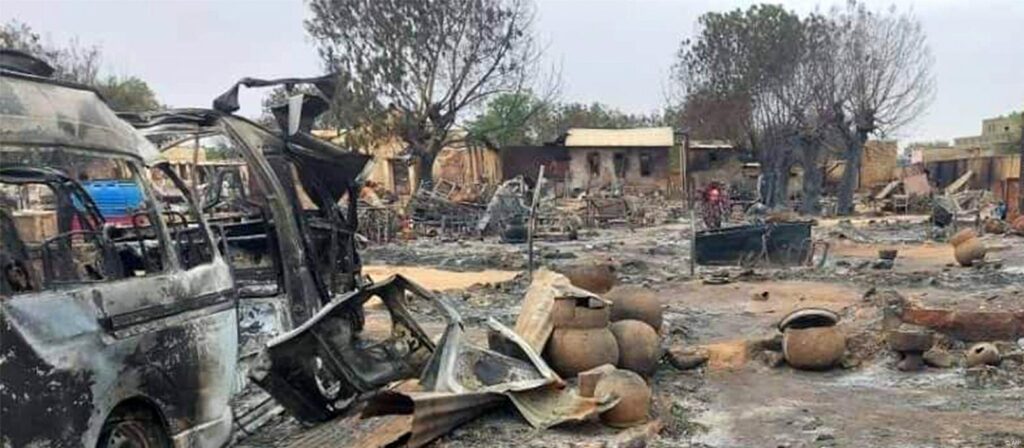International human rights pressure on the Sudanese army continues to grow, following the explicit accusations made by UN High Commissioner for Human Rights Volker Turk, who on Thursday accused the army and its allied militias of committing large-scale executions of civilians in Khartoum.
While Volker Turk expressed his shock at reliable reports of extrajudicial executions of civilians suspected of cooperating with the Rapid Support Forces, he called on Sudanese army leaders to take immediate measures to end the arbitrary deprivation of life.

Sudanese army leaders are facing a real dilemma following increasing international reports, from the highest levels, about the army’s violations. According to observers, this paves the way for new sanctions and criminal trials, after reports from Human Rights Watch, Amnesty International, and local Sudanese advocacy groups confirmed that the actions of the army and its militias amount to war crimes and crimes against humanity.
The Sudanese army has carried out extrajudicial executions and forced mass displacement of residents throughout Khartoum, according to human rights organizations and activists, with disturbing footage circulating on social media.
Videos and images reviewed by human rights organizations show field executions of prisoners and civilians in neighborhoods such as Berri, Jareif West, Al-Sahafa, Mayo, Al-Azhari, and Al-Kalaklat, as well as Jabal Awlia. Testimonies from residents and eyewitnesses describe scenes of enforced disappearances, mass arrests, and torture by the military forces and their allied militias.
In addition to the executions, the army and its allied militias have been accused of forcing civilians to flee through “horrific repressive practices” in areas including Al-Rahad, Al-Dinder, and Al-Kanabi in Al-Jazeera State, as well as Hafaya Al-Muluk, Al-Azba Bahri, and Haj Youssef in Khartoum State.
Reports indicated that some videos show the mutilation of civilian bodies in the affected areas, raising concerns about the escalation of violence driven by ethnic motives.
Residents who managed to flee reported scenes of looting homes, burning properties, and the disappearance of young people suspected of opposing the army’s rule.
Sudanese legal experts warn that these actions could have long-term repercussions, including exacerbating ethnic tensions and further destabilizing the country.
The Sudanese Congress Party has called for “the immediate cessation of the unlawful killing approach that exacerbates violence and polarization” and urged the accountability of those responsible, “whether perpetrators or instigators.”
The party warned that impunity for the perpetrators “will only lead to a dangerous escalation that must be prevented before it is too late,” and called for urgent intervention “to stop this chaos and protect civilians from serious violations that contradict all humanitarian and legal values.”
The party also noted that the repetition of such horrific crimes, particularly after the armed forces’ control of the city of Wad Madani, confirms that these actions are part of a “systematic policy used to terrorize civilians and spread fear, making them crimes against humanity under Article 7 of the Rome Statute of the International Criminal Court.”
As international pressure on the army and its militias continues, a silent protest was held by international organizations outside the United Nations headquarters, condemning the Sudanese army’s use of internationally banned weapons against civilians and other shocking violations in the Darfur region, which the “Emergency Lawyers” group described as the deadliest since the conflict began two years ago.
